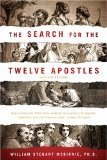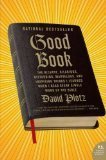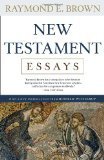Lee Harmon's Blog, page 125
June 24, 2011
Matthew 1:21-23, God the Son? Part III of IV
And she shall bring forth a son, and thou shalt call his name JESUS: for he shall save his people from their sins. Now all this was done, that it might be fulfilled which was spoken of the Lord by the prophet, saying, Behold, a virgin shall be with child, and shall bring forth a son, and they shall call his name Emmanuel, which being interpreted is, God with us.
//Matthew loves to quote scripture. Jesus wasn't named Emmanuel, but that doesn't matter: If Isaiah had prophesied a child named Fred Flintstone, I suspect Matthew would have found a way to tie that name in, so badly does he wish to show Jesus as the fulfillment of scripture.
Continuing the theme of the last two posts, we're discussing the title God the Son (which was never used in the Bible), and whether or not Matthew shared John's vision that Jesus was God incarnate. Some readers point to today's verse as evidence of Jesus being God, but it really proves little. "God with us" doesn't mean "I am God"...if it did, no other person on earth would be named Emmanuel. More likely, Matthew imagined Emmanuel to mean something along the lines of, "I am bringing the Kingdom of God to you." Matthew, in fact, explains precisely how he relates the name Emmanuel to the name Jesus in today's verse: "for he shall save his people from their sins." And in Matthew's version, this is done without God, who forsook Jesus on the cross. Bluntly put: to Matthew, Emmanuel could be pretty much anybody except God.
Sometimes the loudest argument is one from silence. If Matthew wanted to convey that Jesus is God, he could have said so simply, as John did. But Matthew never once refers to Jesus as God. Not once, despite ample opportunities throughout the Gospel to do so. As I said, Matthew dearly loves to quote the prophets. If he wanted to portray Jesus as God, here is a very powerful verse, a missed opportunity, from Matthew's favorite prophet, Isaiah:
Isaiah 9:6, For unto us a child is born, unto us a son is given: and the government shall be upon his shoulder: and his name shall be called Wonderful, Counselor, The mighty God, The everlasting Father, The Prince of Peace.
Wow! Could any prophecy in the Bible be more useful to a theology of God incarnate? Problem is, Matthew wants absolutely nothing to do with it. It doesn't match Matthew's beliefs. Instead, he goes with the biteless Emmanuel prophecy, turning Jesus' birth into a miracle story, and the theology of God creating a Son by impregnating a virgin.
Jesus is God? John says yes. But it never crossed Matthew's mind.
//Matthew loves to quote scripture. Jesus wasn't named Emmanuel, but that doesn't matter: If Isaiah had prophesied a child named Fred Flintstone, I suspect Matthew would have found a way to tie that name in, so badly does he wish to show Jesus as the fulfillment of scripture.
Continuing the theme of the last two posts, we're discussing the title God the Son (which was never used in the Bible), and whether or not Matthew shared John's vision that Jesus was God incarnate. Some readers point to today's verse as evidence of Jesus being God, but it really proves little. "God with us" doesn't mean "I am God"...if it did, no other person on earth would be named Emmanuel. More likely, Matthew imagined Emmanuel to mean something along the lines of, "I am bringing the Kingdom of God to you." Matthew, in fact, explains precisely how he relates the name Emmanuel to the name Jesus in today's verse: "for he shall save his people from their sins." And in Matthew's version, this is done without God, who forsook Jesus on the cross. Bluntly put: to Matthew, Emmanuel could be pretty much anybody except God.
Sometimes the loudest argument is one from silence. If Matthew wanted to convey that Jesus is God, he could have said so simply, as John did. But Matthew never once refers to Jesus as God. Not once, despite ample opportunities throughout the Gospel to do so. As I said, Matthew dearly loves to quote the prophets. If he wanted to portray Jesus as God, here is a very powerful verse, a missed opportunity, from Matthew's favorite prophet, Isaiah:
Isaiah 9:6, For unto us a child is born, unto us a son is given: and the government shall be upon his shoulder: and his name shall be called Wonderful, Counselor, The mighty God, The everlasting Father, The Prince of Peace.
Wow! Could any prophecy in the Bible be more useful to a theology of God incarnate? Problem is, Matthew wants absolutely nothing to do with it. It doesn't match Matthew's beliefs. Instead, he goes with the biteless Emmanuel prophecy, turning Jesus' birth into a miracle story, and the theology of God creating a Son by impregnating a virgin.
Jesus is God? John says yes. But it never crossed Matthew's mind.
Published on June 24, 2011 06:56
June 23, 2011
Book review: The Search for the Twelve Apostles
 by William Steuart McBirnie, P.H.D.
by William Steuart McBirnie, P.H.D. ★★★★
Whatever happened to the men who learned at the feet of Jesus?
I picked this book up to provide a little insight into the legends and remembered personalities of Jesus' entourage, for my upcoming book about John's Gospel. It turned out to be exactly what I was looking for.
Written by a believer, but properly skeptical about the legends that sprang up, the book goes through each of the Twelve and then wraps up with a discussion of five other notable apostles: John Mark, Barnabas, Luke, Lazarus, and Paul. As tradition dictates, Nathanial in the Gospel of John is assumed to be Bartholomew in the other three Gospels.
For each figure, McBirnie relates a bit of what the New Testament says, what later Gospels and church fathers report, and what traditions are known. He discusses where they later preached, what they were recognized for, how they died, where they were buried. Where legends disagree (and there are many contradictory traditions) McBirnie reports on them all. He personally visited several countries learning local traditions, so much of the research is original.
Interesting and easy to read, I recommend this book for anyone who is curious about the legends of Jesus' closest followers.
(click picture to buy on Amazon)
Published on June 23, 2011 06:35
June 22, 2011
Matthew 19:17, God the Son? Part II of IV
"Why do you ask me about what is good?" Jesus replied. "There is only One who is good."
//We continue our discussion of the Christology of Matthew. In this verse, Jesus denies that he is God. You've probably heard it said that Jesus was somehow telling this man that since he (Jesus) was good, he had to be God. Very unlikely. The rule of thumb is, keep it simple. If it helps, try inserting another name to help decipher the meaning of the verse without bias. What would the verse mean if anybody besides Jesus said it?
"Why do you ask me about what is good?" Paul replied. "There is only One who is good."
Now the meaning of the verse comes across clearly. But this is not the only verse in Matthew in which Jesus is distanced from God. Here are a couple more:
26:64, "But I say to all of you: In the future you will see the Son of Man sitting at the right hand of the Might One and coming on the clouds of heaven."
Given Jesus' words in 22:44, it is clear that "the Mighty One" is God. Jesus and God sit side by side.
27:46, "About the ninth hour Jesus cried out in a loud voice, "Eloi, Eloi, lama sabachthani?"--which means, "My God, my God, why have you forsaken me?"
Matthew portrays Jesus as someone who can be forsaken by God. That would be quite a trick if Jesus was God. Matthew repeatedly shows Jesus and God (not "the Father") as separate entities. God has to come down out of heaven to form a Son. God has to come down out of heaven to bless this Son at his baptism. God departs from his Son at the cross. God sits beside his Son when they rule. The God of Matthew is not "everywhere," he is located in space, as is Jesus. They are separate beings, in separate locations.
All through the book of Matthew "the Father" is interchangeable with "God," but "the Son" is not. You cannot replace "the Son" with "God" or vice versa without introducing syntactical tongue twisters that leave poor Jesus talking to himself, sitting beside himself, praying to himself, forsaking himself. Contrast Matthew's primitive understanding with the Gospel of John. In John there are no such problems, because in John the Son interacts not with God but with the Father. In John, both the Father and the Son are identified as God, but this never gets in the way of the separate identities of Father and Son.
Jesus is God? John says yes. But it never crossed Matthew's mind.
//We continue our discussion of the Christology of Matthew. In this verse, Jesus denies that he is God. You've probably heard it said that Jesus was somehow telling this man that since he (Jesus) was good, he had to be God. Very unlikely. The rule of thumb is, keep it simple. If it helps, try inserting another name to help decipher the meaning of the verse without bias. What would the verse mean if anybody besides Jesus said it?
"Why do you ask me about what is good?" Paul replied. "There is only One who is good."
Now the meaning of the verse comes across clearly. But this is not the only verse in Matthew in which Jesus is distanced from God. Here are a couple more:
26:64, "But I say to all of you: In the future you will see the Son of Man sitting at the right hand of the Might One and coming on the clouds of heaven."
Given Jesus' words in 22:44, it is clear that "the Mighty One" is God. Jesus and God sit side by side.
27:46, "About the ninth hour Jesus cried out in a loud voice, "Eloi, Eloi, lama sabachthani?"--which means, "My God, my God, why have you forsaken me?"
Matthew portrays Jesus as someone who can be forsaken by God. That would be quite a trick if Jesus was God. Matthew repeatedly shows Jesus and God (not "the Father") as separate entities. God has to come down out of heaven to form a Son. God has to come down out of heaven to bless this Son at his baptism. God departs from his Son at the cross. God sits beside his Son when they rule. The God of Matthew is not "everywhere," he is located in space, as is Jesus. They are separate beings, in separate locations.
All through the book of Matthew "the Father" is interchangeable with "God," but "the Son" is not. You cannot replace "the Son" with "God" or vice versa without introducing syntactical tongue twisters that leave poor Jesus talking to himself, sitting beside himself, praying to himself, forsaking himself. Contrast Matthew's primitive understanding with the Gospel of John. In John there are no such problems, because in John the Son interacts not with God but with the Father. In John, both the Father and the Son are identified as God, but this never gets in the way of the separate identities of Father and Son.
Jesus is God? John says yes. But it never crossed Matthew's mind.
Published on June 22, 2011 07:17
June 21, 2011
Book review: John
 by R. Alan Culpepper
by R. Alan Culpepper
★★★★
Three hundred seventy six small-print pages about the life and legends of St. John the Apostle. Culpepper is one of the foremost authorities on Johannine writings, and I'm a Culpepper fan, but this was overkill.
My current project is a story about the making of John's Gospel, and naturally, John the Apostle is a primary character. For this, Culpepper's book proved to be an exhausting resource. Oops, I meant exhaustive. Must have been a Freudian slip.
I had to give the book a strong rating for its research; there is simply nothing like it out there. You'll learn stories about John in the Bible, a discussion of his possible identity as the Beloved Disciple of the Fourth Gospel, the evidence of Johannine thinking in the epistles of John, how the Gospel of John gained acceptance in the church (walking first through Gnostic strands of Christianity), various other extra-canonical Christian writings portraying John as a hero, legends about John written by more than twenty church fathers, how he became an icon in art and literature, all leading to current-day opinions by Bible scholars. Whew.
Buy it as a reference book.
(click picture to buy on Amazon)
Published on June 21, 2011 06:27
June 20, 2011
Matthew 1:18, God the Son? Part I of IV
Now the birth of Jesus Christ was as follows: After His mother Mary was betrothed to Joseph, before they came together, she was found with child of the Holy Spirit.
//In several past blog posts, I introduced the high Christology of John's Gospel. In that Gospel, Jesus is presented clearly as God. On the other side of the spectrum, however, is Matthew's Gospel. These two gospels--Matthew and John--build upon some of the same building blocks, but have gone two different directions. Nowhere is this more evident than in their differing Christology.
We've discussed John, so over the course of several posts, I'd like to discuss Matthew's take on who Jesus is. The conclusion, each time, will be that it never crossed Matthew's mind that Jesus is God.
In preparing for this discussion, I urge you to recognize that all of the Gospels were written anonymously. All were written between 40 and 70 years after Jesus died, by men who had most likely never seen Jesus. All were written in Greek, not Jesus' native Aramaic tongue. It is important for this study to divorce yourself from the assumption that the authors of Matthew and John sat together at the feet of Jesus, learning the same doctrine.
Let's begin with Matthew's greatest contribution to Christian theology. It is this: Jesus is God's son. Now, this doesn't sound very astounding at first. Every Gospel writer calls Jesus the Son of God, and so does Paul, the earliest Christian writer. But how might this phrase have been meant by other writers? In the century of Christ, there were two common understandings of how this phrase was meant in the Old Testament:
[1] A minor deity or angel. The "sons of God" procreated with the daughters of men in Genesis, and the "sons of God" traversed the earth in Job.[2] One ordained by God, such as the kings of Israel.
Matthew rejects both of these meanings, and falls back on legends of gods mating with humans. Such legends were common in the Hellenistic world, and can even be read in the Bible: See Genesis 6:4. To Matthew, "Son of God" means precisely what it sounds like. Matthew quotes from the Septuagint, rather than the original Hebrew, to show that a "virgin" (instead of just a young maiden) will conceive and bear a son. Matthew's particular contribution here is very important: He is dogmatic that Mary was impregnated not by Joseph, but by God Himself. She was found with child of the Holy Ghost, and that which is conceived in her is of the Holy Ghost. Now we see just how astounding Matthew's claim is! Matthew insists that Jesus is more than the expected Messiah. He is--gasp--the very offspring of God! When Matthew uses the phrase "Son of God," he in no way implies "God the Son." Contrary to John, Matthew gives no hint that Jesus existed before birth. God, in spirit form, came down from heaven, impregnated Mary, and formed a half-human-half-god offspring. Jesus.
Jesus is God? John says yes. But it never crossed Matthew's mind.
//In several past blog posts, I introduced the high Christology of John's Gospel. In that Gospel, Jesus is presented clearly as God. On the other side of the spectrum, however, is Matthew's Gospel. These two gospels--Matthew and John--build upon some of the same building blocks, but have gone two different directions. Nowhere is this more evident than in their differing Christology.
We've discussed John, so over the course of several posts, I'd like to discuss Matthew's take on who Jesus is. The conclusion, each time, will be that it never crossed Matthew's mind that Jesus is God.
In preparing for this discussion, I urge you to recognize that all of the Gospels were written anonymously. All were written between 40 and 70 years after Jesus died, by men who had most likely never seen Jesus. All were written in Greek, not Jesus' native Aramaic tongue. It is important for this study to divorce yourself from the assumption that the authors of Matthew and John sat together at the feet of Jesus, learning the same doctrine.
Let's begin with Matthew's greatest contribution to Christian theology. It is this: Jesus is God's son. Now, this doesn't sound very astounding at first. Every Gospel writer calls Jesus the Son of God, and so does Paul, the earliest Christian writer. But how might this phrase have been meant by other writers? In the century of Christ, there were two common understandings of how this phrase was meant in the Old Testament:
[1] A minor deity or angel. The "sons of God" procreated with the daughters of men in Genesis, and the "sons of God" traversed the earth in Job.[2] One ordained by God, such as the kings of Israel.
Matthew rejects both of these meanings, and falls back on legends of gods mating with humans. Such legends were common in the Hellenistic world, and can even be read in the Bible: See Genesis 6:4. To Matthew, "Son of God" means precisely what it sounds like. Matthew quotes from the Septuagint, rather than the original Hebrew, to show that a "virgin" (instead of just a young maiden) will conceive and bear a son. Matthew's particular contribution here is very important: He is dogmatic that Mary was impregnated not by Joseph, but by God Himself. She was found with child of the Holy Ghost, and that which is conceived in her is of the Holy Ghost. Now we see just how astounding Matthew's claim is! Matthew insists that Jesus is more than the expected Messiah. He is--gasp--the very offspring of God! When Matthew uses the phrase "Son of God," he in no way implies "God the Son." Contrary to John, Matthew gives no hint that Jesus existed before birth. God, in spirit form, came down from heaven, impregnated Mary, and formed a half-human-half-god offspring. Jesus.
Jesus is God? John says yes. But it never crossed Matthew's mind.
Published on June 20, 2011 07:02
June 19, 2011
Book review: Good Book
 by David Plotz
by David Plotz ★★★★★
100% recommended! This romp through the Hebrew Bible is much more than just fascinating and funny. It's also engrossing, mildly irreverent, thought-provoking, disturbing--you'll love the Good Book whether you're a believer or not. This is the Bible unveiled in all its grime and greatness. The characters in Genesis are especially unforgettable, from the story of Abimalech lusting after a 90-year-old woman (Sarah, Abraham's wife) to a diabolical mother-and-son plot to rob the simple-minded Esau of his blessing from an over-trusting father.
Book by book, Plotz takes us through the scripture. If Genesis is the best part, then the appendix runs a close second. There you'll learn the Bible's twelve best pick-up lines, the thirteen most spectacular murders, the nine best parties, the best prostitutes, the most hellacious divine punishment, the trippiest dreams, and more.
This is for all you skeptics who think reading the Bible is a waste of time. Plotz apparently thought the same thing before taking on this project. After thirty-nine books, 929 chapters, more than 600,000 words, and just over a year, Plotz admits he's become "a full-on Bible thumper. Everyone should read it--all of it! In fact, the less you believe, the more you should read."
Start with this book as an introduction to get the juices flowing. Plotz is more than a good researcher, he's a great writer. I'm in awe. I could enthusiastically read anything he writes, I'm sure of it. So, when he tackles a topic already fascinating to me (the Bible) it's pure delight. He's also unfortunately a Jew, which means we only get the Old Testament in his Good Book. Please, David, can't you give Billy Graham a listen?
(click picture to buy on Amazon)
Published on June 19, 2011 07:37
June 18, 2011
Numbers 5:29-30, Got a Cheating Wife?
This, then, is the law of jealousy when a woman goes astray and defiles herself while married to her husband, or when feelings of jealousy come over a man because he suspects his wife. The priest is to have her stand before the LORD and is to apply this entire law to her.
//Here's a sure-fire solution for all you guys who wonder if your wife has been cheating. It's called the "Law of Jealousy," and it comes straight from the mouth of God to Moses, so you know it will work.
First, get your wife to a priest. Be sure to bring a half gallon of barley flour as a "jealousy offering."
The priest will help her stand trial before God. He'll put some holy water in a clay jar and mix in some dust from the floor. He'll let her hair down, so she looks the part of a prostitute. While she holds your half gallon of barley flour as an offering to God, the priest will stand in front of her with the dirty water. He'll put her under oath and promise no harm will come if she has been faithful to you. On the other hand, if she has been unfaithful, a curse will be upon her; her abdomen will swell and her womb will shrivel. As she watches solemnly, the priest will write this curse on a piece of leather, and "wash it off" into the bitter water.
Then, the priest will take your barley flour from her hands and carry it to the altar. A handful of it is burned in sacrifice while your wife drinks the curse.
If she has been faithful, she'll be unharmed and still be able to have children.
//Here's a sure-fire solution for all you guys who wonder if your wife has been cheating. It's called the "Law of Jealousy," and it comes straight from the mouth of God to Moses, so you know it will work.
First, get your wife to a priest. Be sure to bring a half gallon of barley flour as a "jealousy offering."
The priest will help her stand trial before God. He'll put some holy water in a clay jar and mix in some dust from the floor. He'll let her hair down, so she looks the part of a prostitute. While she holds your half gallon of barley flour as an offering to God, the priest will stand in front of her with the dirty water. He'll put her under oath and promise no harm will come if she has been faithful to you. On the other hand, if she has been unfaithful, a curse will be upon her; her abdomen will swell and her womb will shrivel. As she watches solemnly, the priest will write this curse on a piece of leather, and "wash it off" into the bitter water.
Then, the priest will take your barley flour from her hands and carry it to the altar. A handful of it is burned in sacrifice while your wife drinks the curse.
If she has been faithful, she'll be unharmed and still be able to have children.
Published on June 18, 2011 06:12
June 17, 2011
Book review: New Testament Essays
 by Raymond E. Brown
by Raymond E. Brown ★★★★
This is collection of fourteen early essays by Brown (1928-1998), recently republished. I'm a big fan of Brown's research, especially in the area of Johannine writings, of which he is considered perhaps the foremost scholar of the 20th century. Brown was a Catholic priest whose critical scholarship of the Bible seemed to only increase his faith in God. By way of introduction to the book, I'll just list a few of my favorite essays.
Our New Approach to the Bible. Though not so new anymore, Brown discusses archaeological and literary accomplishments of the 20th century that force us to read the Bible differently.
The Eucharist and Baptism in John. There are actually two very good essays about John's treatment of these two Christian rituals.
The Qumran Scrolls and the Johannine Gospel and Epistles. John's treatment of dualism was long considered his own invention, until the discovery of the Qumran Scrolls, where many parallels to Johannine thinking can be seen.
The Problem of Historicity in John. Scholars still on occasion categorically reject the historicity of John, without giving proper consideration to the many geographical and political references that have in recent studies been proven accurate.
The Pater Noster as an Eschatological Prayer. Brown takes us sentence by sentence through the most famous prayer in the Bible, explaining its significance as a prayer for an eschatological age.
(click picture to buy on Amazon)
Published on June 17, 2011 06:20
June 16, 2011
Exodus 12:40-41, How long was Israel in Egypt?
Now the length of time the Israelite people lived in Egypt was 430 years. At the end of the 430 years, to the very day, all the LORD's divisions left Egypt.
//430 years Israel lived in Egypt. To the very day, it says. Sounds pretty precise. Let's add things up, and see if we agree.
Genesis 46:7-11 starts the story, telling how Jacob took all his family, including grandchildren, into Egypt. One of these grandchildren making the trip was Kohath.
In Exodus 6:18-20, Kohath has a son named Amram, and we learn Kohath lived 133 years. Then Amram has a son named Moses. Amram lived 137 years.
Exodus 7:7 tell us Moses was 80 years old when he confronted Pharoah. They left Egypt shortly thereafter.
Suppose Kohath entered Egypt as a newborn. Suppose further that Kohath conceived Amram from his deathbed, and Amram conceived Moses from his deathbed. That still leaves us with a maximum possible number of years of 133 + 137 + 80 = 350 years that Israel lived in Egypt.
430 years to the day? Anyone see where my math is wrong?
//430 years Israel lived in Egypt. To the very day, it says. Sounds pretty precise. Let's add things up, and see if we agree.
Genesis 46:7-11 starts the story, telling how Jacob took all his family, including grandchildren, into Egypt. One of these grandchildren making the trip was Kohath.
In Exodus 6:18-20, Kohath has a son named Amram, and we learn Kohath lived 133 years. Then Amram has a son named Moses. Amram lived 137 years.
Exodus 7:7 tell us Moses was 80 years old when he confronted Pharoah. They left Egypt shortly thereafter.
Suppose Kohath entered Egypt as a newborn. Suppose further that Kohath conceived Amram from his deathbed, and Amram conceived Moses from his deathbed. That still leaves us with a maximum possible number of years of 133 + 137 + 80 = 350 years that Israel lived in Egypt.
430 years to the day? Anyone see where my math is wrong?
Published on June 16, 2011 06:23
June 15, 2011
Book review: Michael's Reward
 by Mario Bernheim
by Mario Bernheim ★★★★
Michael's Reward is an imaginative, modern day retelling of the book of Job in the Bible. You know, that rich dude who lost everything but who stayed true to God, so he got it all back with interest.
Parts of the story must have been difficult for Bernheim to write. Michael's pain, when he loses his children, his wife, his wealth, his health, is just too vivid. Thankfully, I couldn't really relate, or the painful half of the story might have been overwhelming. It's a riches-to-rags-to-riches story in the extreme, with little common ground for us regular guys. I associated with Michael briefly on the way down, and briefly again on the way back up.
This is a good retelling, faithful to the spirit of Job and the conundrum he faces. It'll bring the biblical story alive for you, I guarantee it. And that, for me, was the problem. I don't like the book of Job, and I like it even less now. The idea of God playing games with human lives is distasteful. The idea of wealth as a measure of God's approval is equally distasteful. Didn't Jesus tell us not to lay up treasure on earth, but in heaven?
Which brings up a point. There is one major difference between the old Job and the new Job, and it's this: Today's Job knew his children were in heaven, and knew he would someday be up there with them, and that makes the second half of the story--the rise to riches--seem beside the point. We have since found more realistic ways to imagine a reward for a life faithfully lived. We don't have to pretend God will swoop in and provide a fairy tale ending on earth, which is a good thing, since real life doesn't happen that way. It just doesn't. We haven't thought that way since the age of the Maccabees, when the harshness of real life forced us to abandon the idea of justice on earth, and we instead became believers that we would be rewarded for faithfulness in the afterlife. For me, the story of Job is obsolete, a product of antiquated religion.
Nevertheless, while Michael/Job left a sour taste in my mouth, and while I can't rate the story highly for its inspirational value (no problem: I'm positive many other readers will), it deserves a high rating from me because it made me think. It made me talk about it. It took me out of my comfort zone and held me captive until the final page, and I'm still trying to break free.
(click picture to buy on Amazon)
Published on June 15, 2011 06:51



